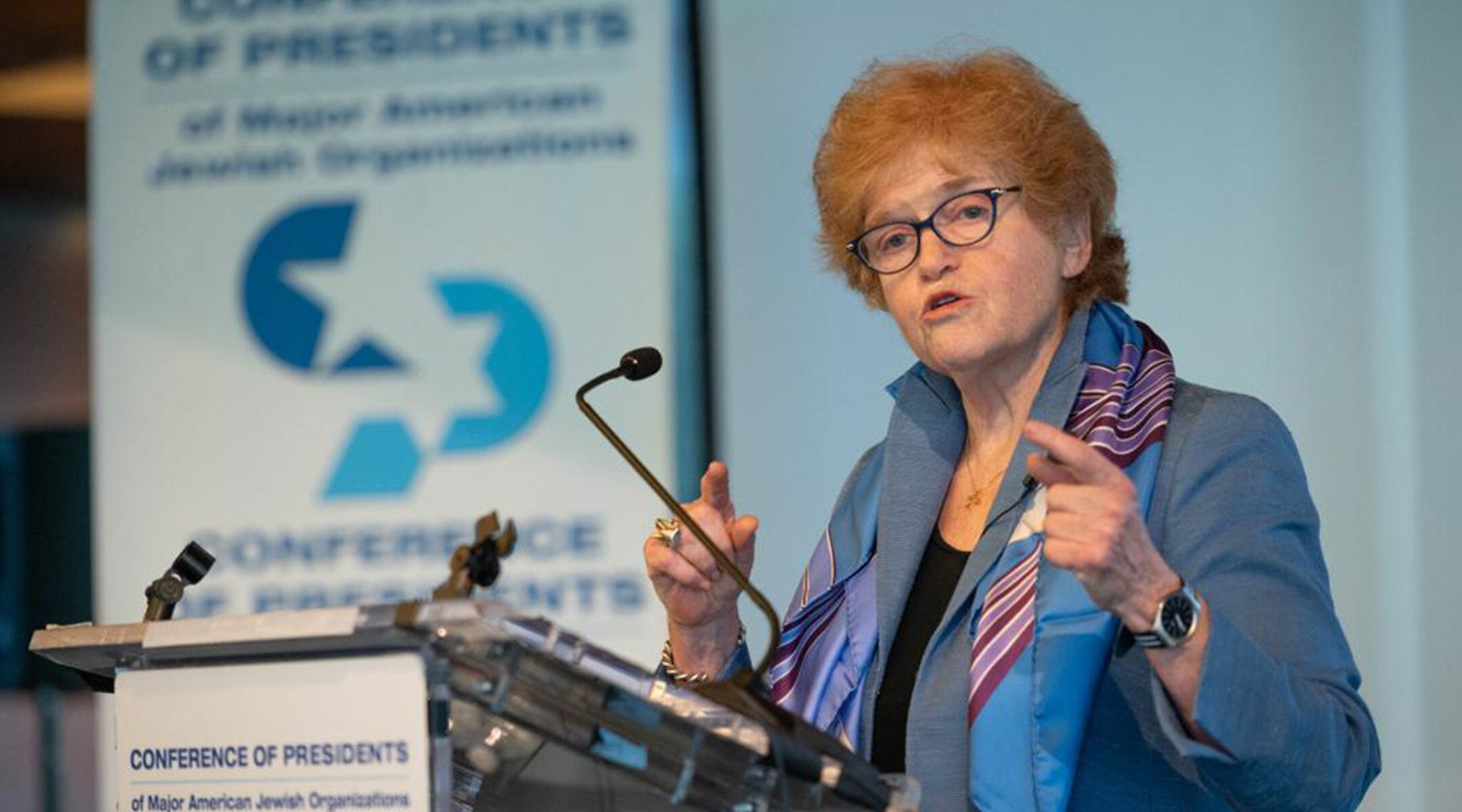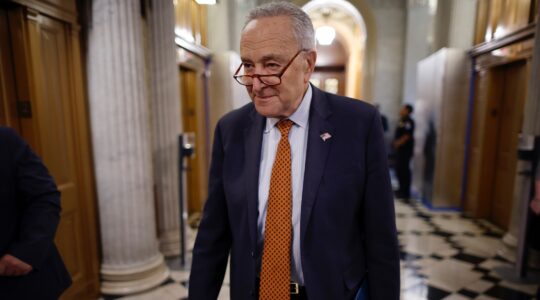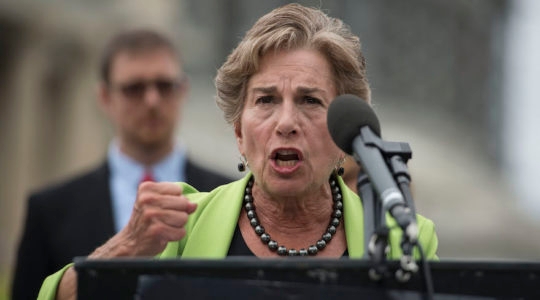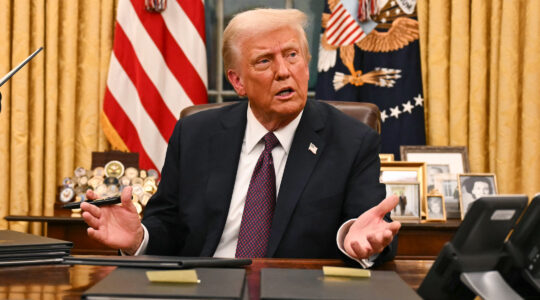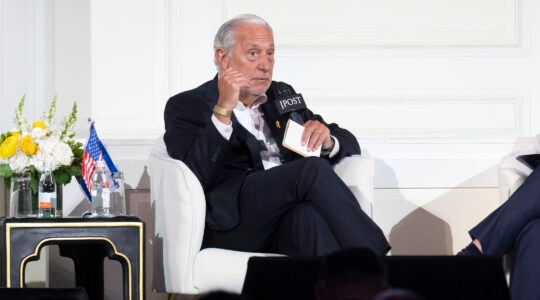WASHINGTON (JTA) — Deborah Lipstadt’s first overseas tour as the State Department’s antisemitism monitor will start in Saudi Arabia, a signal of the kingdom’s efforts to change its image in the West and among Jews.
Lipstadt who was confirmed to the ambassadorial post in March said she proposed the visit to the Saudis, who were immediately receptive. She saw it as an opportunity to reach a nation influential in worldwide Muslim education because of its wealth and its status as the land of Islam’s holiest sites.
She said she hoped to meet with political, religious and civil society leaders.
“To talk with them about normalizing the situation of, the vision of the Jews, normalizing the understanding of Jewish history for their population, particularly the younger — not only, but particularly with a younger population — is really important,” Lipstadt said at a June 18 briefing with Jewish media at the State Department. “It makes a statement about the change.” The department embargoed the briefing until the dates of the 11-day trip, starting June 26, were finalized.
Lipstadt credited the Abraham Accords, the normalization agreements between Israel and four Arab countries, for making such a visit possible.
“If you had told me a year ago, even after the Abraham Accords, that would be the first place I would go. I would say you’re dreaming,” she said.
Lipstadt will also visit Israel and the United Arab Emirates, one of the Abraham Accords signatories. Her tour comes ahead of Biden’s visit to the region next month. Biden will visit Israel, the West Bank and Saudi Arabia, where he will attend a meeting of the GCC+3, the grouping of the Sunni Arab Gulf Cooperation Council states, and Egypt, Jordan, and Iraq.
Much of the West and especially the Democratic Party establishment remains wary of Saudi Arabia and its de facto ruler, Crown Prince Mohammed bin Salman, because of its role in the bloody war in neighboring Yemen and the 2018 murder in Turkey of U.S.-based journalist Jamal Khashoggi. Jewish groups harbor memories of the Saudis leading hostile anti-Israel and anti-Jewish policies through the 1980s.
Saudi Arabia has in recent months launched an intensive image-improving campaign, most notably setting up an alternative to the golf world’s PGA tour. It has also reached out in recent years to Jewish groups, last week hosting a group of 13 Jewish leaders, including six senior New York UJA-Federation leaders, for a short visit.
Lipstadt at her briefing also described a meeting she convened last week of her counterparts from around the world, including from Germany, the European Union, Israel, Britain, and Canada. She said the exchange of ideas was fruitful and she hoped to convene it “regularly, every two, three months, four months.” “We can learn from one another,” she said.
Lipstadt, who when she campaigned for President Joe Biden suggested the Trump administration displayed fascistic tendencies, said at the briefing that it was critical to convey to populations how antisemitic theories portend trouble for all groups and for democracy. She also said the reverse is true — conspiracy theorists frequently end up embracing antisemitic tropes and endangering Jews.
Antisemitism “creates a lack of distrust in government, because if you feel that there is a group controlling the media, controlling the judiciary, controlling the banks, controlling the government agencies, why should I trust them? Why should I trust the democracy?” she said. “Antisemitism is the canary in the coalmine.”
Lipstadt said her next trip later in the year would be to Argentina and Chile. In Argentina, she hopes to bring back into the spotlight the unresolved 1994 bombing attack on AMIA, the Jewish community center in Buenos Aires, which killed 85 people.
In Chile, she said, she will speak with Jewish community leaders who are “feeling under pressure” since the election because of pressure on the community from the president, Gabriel Boric, to criticize Israel.
JTA has documented Jewish history in real-time for over a century. Keep our journalism strong by joining us in supporting independent, award-winning reporting.
